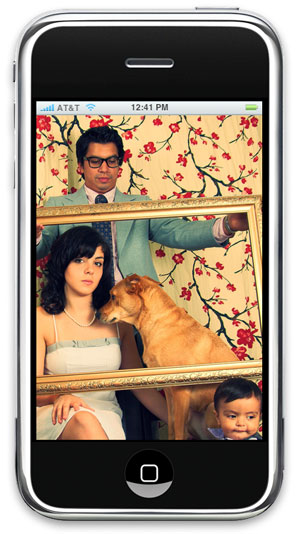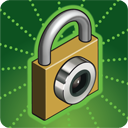
Protect Your Valuable Photos
Keep Special Memories Private
CameraSafe lets you easily protect your valuable and secret photos from prying eyes and data thieves.
Even if your iPhone is lost or stolen, your photos remain private and cannot be viewed by anybody.
Your most important photos deserve the most secure protection. Get CameraSafe today.
If you reveal your secrets to the wind, you should not blame the wind for revealing them to the trees.
-Kahlil Gibran
Why should I protect my photos?
If your iPhone is lost or stolen, thieves may be able to extract all your personal data. Your photos could be made public on the internet or used for malicious purposes. The only way to protect photos is to encrypt them.
What is encryption?
Encryption uses mathematical formulae to transform your photos into what appears to be random data, based upon a password you pick. Without your secret password, it is not possible to turn the data back into a photo for viewing. Consider encryption to be a form of insurance, it safeguards your privacy when your photos are no longer in your own hands.
Do I need CameraSafe?
Yes, CameraSafe protects photos with strong encryption, and is for anybody who values privacy and wants to store important photos on their iPhone. CameraSafe has been designed to protect your photos from the very second they are taken. If you own the original iPhone or iPhone 3G, CameraSafe is essential as these models are not as secure as the iPhone 3GS.
I subscribe to MobileMe and can remote wipe my iPhone, do I still need CameraSafe?
Yes, CameraSafe provides you with total peace of mind as the remote wipe function can be disabled by simply removing the SIM card from the iPhone. Remote wipe does not solve the issue of unencrypted personal data on the iPhone and on your computer (when iTunes backs up your iPhone).
How strong is the encryption used by CameraSafe?
Very strong. CameraSafe can stop organisations, even with vast resources, from viewing your photos. CameraSafe uses hardware accelerated AES-256 encryption, as built into the iPhone. AES encryption has been approved by the US National Security Agency to protect US Government material classified as Top Secret. AES encryption has been peer reviewed and is widely used by governments, corporations and individuals globally.
I have the iPhone 3GS with hardware encryption, do I still need CameraSafe?
Yes, you should still use CameraSafe to keep sensitive photos separate from your normal photos, and protect them with a second layer of encryption. The iPhone 3GS hardware encrypts all storage memory making it completely transparent to applications, however when the iPhone is turned on, anybody using the iPhone can access photos and have full access to personal data. In addition, iTunes backups on computers are unencrypted by default (Apple has provided an option to encrypt iTunes backups but this must be manually enabled). Storing sensitive data in a separate and secure application is highly recommended.
With CameraSafe, your decryption key is never stored on the iPhone, but instead generated from your chosen password (which itself is never stored) and kept in memory temporarily. With the iPhone 3GS, it is believed that the decryption key, most likely created at the time of manufacturing, is hidden somewhere on the phone. This raises the possibility that a method to extract the decryption key could be found and popularized, and there may even exist a backdoor for governments to easily retrieve the decryption key embedded in the phone.




